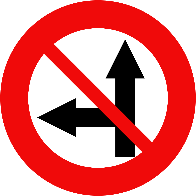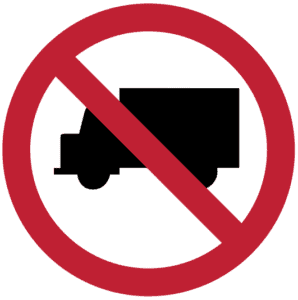|
SỞ GD – ĐT THÀNH PHỐ HỒ CHÍ MINH ĐỀ THI THỬ SỐ 20 |
KỲ THI TUYỂN SINH VÀO LỚP 10 Thời gian làm bài: 90 phút |
Họ và tên học sinh:.................................................................................................................................................
- Choose the word (A, B, C or D) whose underlined part is pronounced differently from the others.
- Choose the word (A, B, C or D) whose main stress is placed differently from the others in each group.
- Choose the word / phrase (A, B, C or D) that best fits the space in each sentence.
A. If B. Unless C. Because D. Although
A. are you B. aren’t you C. do you D. don’t you
A. All right B. We go C. Yes, please D. You’re going
A. benefits B. advantages C. conveniences D. limitations
A. Congratulations B. Good luck C. Well done D. That’s wonderful
A. do / for B. do / to C. make / for D. make / to
A. However B. Therefore C. But D. Although
A. efficiency B. efficient C. efficiently D. effective
- Choose the best answer (A, B, C or D) for the following picture or sign.
- Choose the word (A, B, C or D) that best fits the blank space in the following passage.
- A. when B. where C. what D. who
- A. wind B. rain C. fog D. storm
- A. in B. at C. on D. of
- A. difficulty B. easily C. hardly D. quickly
- A. winds B. rains C. fogs D. storms
- A. air B. steam C. wind D. water
- Read the passage, then decide if the statements that follow it are True or False.
- German, French and Italian are three official languages in Switzerland. __________
- Many people in Switzerland speak German, but probably only a very few speak Romansch. __________
- Italian is an official language. __________
- On Swiss coins, you will find the name Switzerland. __________
Read the passage again and choose the correct answer.
A. In the North B. In the West C. In the Center D. In the South
A. German B. Italian C. French D. Latin
- Use the correct form of the word given in each sentence.
- Recently pop-rock music has decreased in ______________________________________. (popular)
- Your money will be refunded if the goods prove to be _____________________________. (satisfy)
- The ____________________________ of old buildings should be taken into consideration. (preserve)
- It is tiring to talk to such ________________________________________-minded person. (conserve)
- They did everything possible to __________________________________ the police force. (strong)
- Smoke from cigarettes can even do harm to _____________________________________. (smoke)
- Put the words in the correct order to make meaningful sentences.
- Rewrite each of the following sentences in another way so that it means almost the same as the sentence printed before it.
|
SỞ GD – ĐT THÀNH PHỐ HỒ CHÍ MINH ĐỀ THI THỬ SỐ 20 |
KỲ THI TUYỂN SINH VÀO LỚP 10 Thời gian làm bài: 90 phút |
I. Choose the word (A, B, C or D) whose underlined part is pronounced differently from the others.
- A. boxes /ɪz/ B. washes /ɪz/ C. watches /ɪz/ D. goes /z/
- A. manage /ɪʤ/ B. massage /ɑːʒ/ C. coverage /ɪʤ/ D. garbage /ɪʤ/
II. Choose the word (A, B, C or D) whose main stress is placed differently from the others in each group.
- A. answer /ˈɑːnsə/ B. reduce /rɪˈdjuːs/
C. empty /ˈempti/ D. subject /ˈsʌbʤɪkt/
- A. national /ˈnæʃənl/ B. interesting /ˈɪntrɪstɪŋ/
C. probable /ˈprɒbəbl/ D. delicious /dɪˈlɪʃəs/
III. Choose the word or phrase (A, B, C or D) that best fits the blank space in each sentence
- B. Unless:
Dịch: Nếu chúng ta không sử dụng tiết kiệm nước, trong tương lai chúng ta sẽ không có đủ nước sạch để sử dụng.
- C. do you: Câu hỏi đuôi. Vế 1 đã có “never” mang nghĩa phủ định, nên vế câu hỏi đuôi không cần thêm “not”, động từ “go” là động từ thường nên mượn trợ động từ “do”.
- B. in: in the Ring of fire: vành đai lửa.
- A. All right: Câu hội thoại thực tế. Đáp lại lời đề nghị.
- D. limitations: Kiểm tra từ vựng: benefit (lợi ích), advantage (ưu điểm), convenience (sự tiện nghi), limitation (sự hạn chế).
Dịch: Tôi không thích sử dụng Internet vì nó có vài sự hạn chế.
- C. from: Giới từ theo sau “differ” là from.
- B. good luck: Câu hội thoại thực tế.
- B. do/to: do harm to: gây hại đến.
Dịch: Nước ô nhiễm có thể gây hại trực tiếp đến sức khỏe con người và giết chết cá.
- A. However: Trước chỗ trống là dấu chấm (.) nên không dùng “but” được.
- A. efficiency: Trước chỗ trống là danh từ “energy”, sau chỗ trống cũng là danh từ “model”. Vậy chỗ trống phải là danh từ để tạo thành cụm danh từ.
IV. Choose the best answer (A, B, C or D) for the following picture or sign.
- Bạn có thể rẽ trái.
- Bạn có thể đi thẳng
- Bạn không thể rẽ trái và đi thẳng.
- Bạn được phép rẽ trái và đi thẳng..
- Xe tải có thể di chuyển trên đoạn đường này.
- Xe tải bị cấm di chuyển trên đoạn đường này.
- Vui lòng không sử dụng phương tiện giao thông.
- Xe tải trên 20 tấn có thể tiếp tục đi.
V. Choose the word (A, B, C or D) that best fits the blank space in the following passage.
- A. when
- B. rain
- D. of
- B. easily
- A. winds
- D. water
Hạn hán là một điều kiện trở thành (17) khi lượng mưa trung bình giảm xuống thấp hơn nhiều so với lượng bình thường trong một thời gian dài. Ở những vùng không được tưới tiêu, việc thiếu (18) mưa làm cho cây trồng bị chết. Nhiệt độ cao hơn bình thường thường đi kèm với thời kỳ hạn hán (19). Chúng làm tăng thêm thiệt hại cho mùa màng. Cháy rừng dễ (20) xảy ra trong thời gian khô hạn. Đất của một khu vực khô hạn trở nên khô và vỡ vụn. Thường thì lớp đất mặt giàu có bị thổi bay bởi gió (21) nóng và khô. Các con suối, ao và giếng thường khô cạn khi hạn hán, động vật bị ảnh hưởng và thậm chí có thể chết vì thiếu (22) nước.
VI. Read the passage, then decide if the statements that follow it are True or False
Switzerland is a small country in central Europe. The total land area of this tiny country is only 15,941 square miles (41,288 square kilometers). The estimated population of this European nation in 1984 was 6,392,000.
Because this nation is so small, you might think that there is only one nation language. However, you would be incorrect because there are three official languages. They are German, French and Italian. As a result, Switzerland has three official names: Schweiz (in German), Suisse (in French), and Svizzera (in Italian). All national laws are published in these languages.
The three official languages plus Romansch are the four national languages spoken in Switzerland. If you look on Swiss coins or postage stamps, you will not find the name for this country in any of the national languages. Instead, you will find the word “Helvetia”, the Latin name for this country.
- TRUE. Từ khóa là official languages. Câu văn However, you would be incorrect because there are three official languages. They are German, French and Italian.
- FALSE. Đoạn văn không đề cập.
- TRUE. Từ khóa Italian. Câu văn Switzerland has three official names: Schweiz (in German), Suisse (in French), and Svizzera (in Italian).
- FALSE. Từ khóa là Swiss. Câu văn If you look on Swiss coins or postage stamps, you will not find the name for this country in any of the national languages
- C. Switzerland is a small country in central Europe
- D. Instead, you will find the word “Helvetia”, the Latin name for this country.
VII. Use the correct form of the word given in each sentence
- Dấu hiệu: Trước chỗ trống là giới từ “in”, do đó chỗ trống là V-ing hoặc danh từ.
Đáp án: popularity.
- Dấu hiệu: trước chỗ trống là động từ tobe “be”, do đó chỗ trống phải là tính từ. Mặt khác, nếu dịch nghĩa tiền sẽ được hoàn trả nếu KHÔNG hài lòng về sản phẩm.
Đáp án: unsatisfactory.
- Dấu hiệu: trước chỗ trống là mạo từ “the”, sau chỗ trống là giới từ “of”, do đó chỗ trống là danh từ.
Đáp án: preservation.
- Dấu hiệu: Trước chỗ trống là “such”, sau chỗ trống có danh từ “person”, do đó chỗ trống phải là tính từ.
Đáp án: conservative.
- Dấu hiệu: Trước chỗ trống là “to”, chỗ trống phải là động từ nguyên mẫu.
Đáp án: strengthen.
- Dấu hiệu: Trước chỗ trống là động từ “do harm to”, do đó chỗ trống phải là danh từ..
Đáp án: non-smoker (s).
VIII. Put the words in the correct order to make meaningful sentences.
- Wearing uniforms helps students feel equal in many ways whether they are rich or poor.
Dịch: Mặc đồng phục giúp học sinh bình đẳng về nhiều mặt dù giàu hay nghèo.
- For me the Internet is a wonderful invention in modern life.
Dịch: Đối với tôi Internet là một phát minh tuyệt vời trong cuộc sống hiện đại.
IX. Rewrite each of the following sentences in another way so that it means almost the same as the sentence printed before it.
- Viết lại câu bằng hiện tại hoàn thành bắt đầu bằng “This is the third time + S + have/has + V3 +…
Đáp án: This is the third time I have asked you this question.
- Viết lại câu với nghĩa không đổi thay thế bằng từ (take up = take part in: tham gia).
Đáp án: Young children should take up/ part in those outdoor activities.
- Viết lại câu sử dụng mệnh đề quan hệ. Dấu hiệu: trong hai câu đơn cùng đề cập đến 1 đối tượng.
Đáp án: Have you seen the film “Titanic” which is on Red Cinema?
- Viết lại câu ở thể bị động với động từ khiếm khuyết “have to”.
S + have/has to + be + V3 +…+ (by O).
Đáp án: The bills have to be paid before the fifth of the mont.

